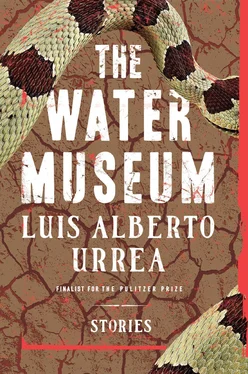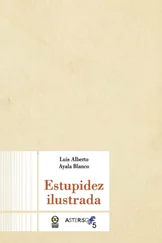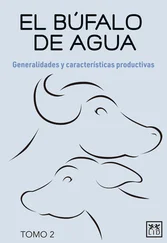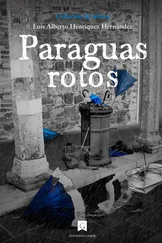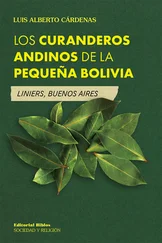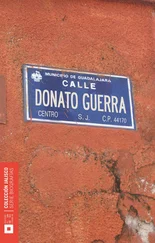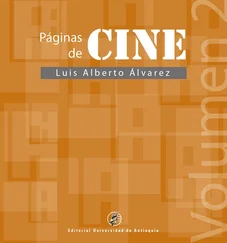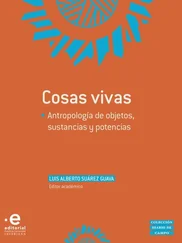Ralph studies the Big Beaner Platter — eggs, chorizo, beans, and tortillas — as if it were an engine needing a tune-up. He isn’t sure if Mex food is right for the valley. But he’s up for something new.
Professor: “Ralph, what you eating?”
Ralph: “Illegal alien grub.”
The Professor turns to three sheepherders skulking in the corner booth, hunched and dark.
“Sorry,” he says.
“Basque,” says one of them — and a look that tells him to mind his own business. “Legal.” The men go back to their eggs.
Professor: “And what you reading?”
Ralph: “Paper.”
Professor: “What’s it say?”
Ralph: “Same as yesterday. Obama’s still a communist.”
Miss Sally: “Oh now.” She still has an old Hillary sign in her front yard. The only blue campaign sign in the whole region.
* * *
Frankie’s in and out of the swinging door all day long. She tries to count her steps — Dr. Oz says to get in ten thousand a day. She could probably get there on a fairly busy shift. It reminds her of the old marching days. She can’t afford busboys right now, so she buses the tables, cooks, washes dishes, and takes the orders. A strand of hair has escaped her braid, and it is stuck to the sweat at her temple. She brushes it away with the inside of her wrist. Her eyes are still blue. No rings on her fingers.
Professor: “You’re sweet as a spring daisy.”
Frankie: “Sweet-talk me some more and I might run off with you.”
She tops off his cup.
“How’s the hunt going?” she asks.
“Copacetic.”
He loves big words like that. They only piss Ralph off. The three Basque sheep men in the corner eat loud and mumble in their space-alien lingo. They smell like lambs to Frankie.
The Professor has a contract with a scientific catalogue to supply ants for ant farms. He finds a colony and inserts a straw down the hole and blows until the ants swarm out. When they come up with eggs, he knows he’s getting somewhere. Sooner or later they evacuate their queen, and he sucks her up in a pipette and puts her in a little plastic container. He makes a few bucks off each container, and he makes a few more for bottles with workers and eggs in them. He has to label the various colonies well so the ants won’t find each other when the jars are uncorked and tear each other apart. They go into a cardboard box with perforated holders and go out of Arco via UPS.
He used to man a roadside stand this side of Taco John’s where he sold rock crystals and petrified wood he found in a secret canyon up the side of the butte. He had a little sign on his petrified dino dung box: COPROLITES ARE GOOD SHIT. People were probably offended. He sells his rocks on eBay now.
Ralph: “Hunt, hell. Crawling around with your ass in the air. At your age.”
“You’re a bold talker for a newcomer,” The Professor says.
“Been here since nineteen seventy,” Ralph says.
The Professor winks at Frankie.
“Dear boy,” he says. “I painted the nineteen sixty-three number up on the butte. Used house paint and brand-new rollers that I stole from the janitor’s office at Benson Hill. You can’t top that.”
Ralph rattles the page. He is sick of history. “Congratu-goddamn-lations,” he says.
The tradition started in 1923, after the last Indian died up on the butte. They called him Joe, and some cowboy brought him down on a mule. His little valley was where the Class of 1923 made their ascent to paint their graduation date on the lowest available cliff. It was a scandal — the leader of this wild bunch, Billy Pepper, faced a night in the hoosegow until his pap and Mr. Benson himself came and bailed him out. He was mostly in Dutch for drinking, but the town leaders secretly saw a nice tradition being born. The butte knew, if they didn’t, that the top of the 23 was at the height where great sharks and whales once swam, and where the smoke of old Joe’s last chimney fire hovered as he burned all his letters from his dead wife and his Bible before he lay himself down on the floor of the cabin to sleep forever. Now there is no trace of his house except for the bulbs that break from the ground every April and start to bloom.
The Professor always loved to lecture about the numbers when he subbed the history classes. They weren’t in any particular order—24 was right beside 23, but 25 was far off to the west. It depended on the moxie of the painters, didn’t it. How high were they brave enough to climb? How long were their ropes? His line was: “Junction’s numbers are what hopes and dreams look like.” For these were the best moments of their lives. These were the doorways into imagined futures. Doors they thought were swinging wide, though perhaps only their grandfathers knew the doors were actually slamming behind them.
So 58 abuts 90; 92 bleeds downhill into a feminine-looking 88; 68 is the funny one, but what do you expect? The 8 is two stacked flowers with white petals and yellow hearts — hippies even out here. Some of the numbers seem to have small beards, but these are cascades of dung from peregrine and buzzard nests.
It was 1949 that was the first time people believed the tradition was going to die out. By then, they had made postcards of the numbers, and Frankie’s folks sold them in a wire rack beside the cash register. None of the GIs seemed to want to return home. Those Mountain Men who’d made it back from Guadalcanal and Arles were out there bombing around the USA in jalopies and on motorcycles. Nobody wanted to come punch cows or dig uranium at Arco or try to grow alfalfa or run sheep up on the highlands. That was when the ranches began to die out. Things slowed down, and the first old-timers pronounced The Death of America and The End of the Way Things Were Supposed to Be. But they were off by a few decades. It was really the 1960s that killed them all. Freeways appeared far from New Junction’s city limits, and tourists jumped out of the valley and drove the big roads instead, taking their money with them.
Benson Hill closed in 2000. At least Frankie’s daughter graduated before that. “Oh my Lord,” Frankie thinks. Every once in a while she remembers that she is going to be a grandmother.
She doesn’t like it when The Professor talks about all the stories. It just reminds her that ’Junction is blowing away, bit by bit, and Benson Hill is closed and the Colorettes are gone, and the Sinclair with its grand view of the butte is where Stick used to work and she can still see him smoking and staring up at the numbers and then she sees Son in his silly white bell-bottoms. It’s not right, is what she thinks. Is a town dead when the old men die, or when the children leave?
Ralph and Miss Sally are playing with The Professor. The numbers game. Frankie wishes she had one of those iPod things to shut their voices out. Son Harding used to like crazy new music back then — Yes and Alice Cooper. She’d listen to that right now if she could.
She drops big blues in front of each client, steaming hot. Dabs of butter running in yellow rivulets down their sides. “One Butte with Lava,” she says as she delivers each muffin.
Ralph says, “Nineteen forty-one.”
“Oh well. What a year! We were, of course, at war. Benson Hill boys were patriotic, I tell you. They went in high numbers to the Pacific theater.”
Frankie is thinking, Sonny always told her he’d take her all the way to the ocean — any ocean — if she’d leave Stick and run away with him. Crazy boy. Wrote her the only poems she ever got from anybody.
The Professor: “That number was painted by a young cowboy with jug ears. Name of Wally Wachtel, known as Big Double for the two W’s in his name, don’t you know. And his poor old ears. The only big things about Wally were his ears and his hat.” He laughs. “Wally undertook that project after the prom. Climbed up there alone. If you were to climb on up there, you’d see across the white number four is the name of his sweetheart, Pru Speich. Poor dumb bastard misspelled ‘Pru’ and wrote ‘P-R-O-O.’ Still there. He was shot in the head by a Japanese sniper in the Philippines. His body never came home.”
Читать дальше
